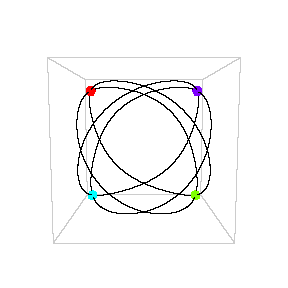What is harder than rock, or softer than water? Yet soft water hollows out hard rock. Persevere.
~ Ovid
If there is one key to creating what you want in your life, it is daily practice. When you repeat again and again, you learn so much about the habit you’re building and about yourself. There are nuances that you do not learn from a how-to guide. Such as how to persevere.
Why daily? And why action?
- DAILY! Daily moves you toward putting in hours to develop your expertise and toward repeating an activity to develop discipline and focus. Whatever your regularity is, you build your own daily practice. You can choose if your daily means 5 days a week (work week daily) or seven days a week (whole week daily) or three times a week (M-W-F regularly).
- ACTION! Action is a form of commitment. A thought can be transitory, passing. An action is you saying to the world, “I am ready and I am doing it.” An action is more powerful than a thought – by definition, Action = Thought + Activity.
But why do it? Why take regular, structured, self-scheduled daily action as opposed to acting whenever you feel like it?
| The Deep Math Example. As my very good friend and a former math professor says,
“It takes a while to get into the problem. You need to sit with it at your desk for several hours at a time just to start to focus deeply enough to be able to create any new conclusions.” It takes time to get deep enough into a subject that you are no longer skirting the surface. |
 |
| The Ballroom Dancing Teacher Example. Have you found that some people who are excellent at what they do returrn to the basics from time to time? Like a yoga teacher taking a basic refresher course. Or an author going back to the structure of his characters? I know dance teachers who regularly take beginner classes. Why? |  |
- When you are at an advanced level, you get a lot more from beginner lessons. You start to see the nuanced distinctions that you didn’t notice at the beginning – “When I ask my students to ‘rock-step’ here, some are still thinking that they are rocking when the important distinction is that they are there-and-immediately back, on their toe and immediately forward… it’s more about the forward than it is about the rock-step back.” You start to see new ways of describing something, new ways of understanding and then being able to explain a concept.
- You take the beginner class to come back to the beginner’s mind. To return to that joy that you loved about the activity to begin with, and to hear and see and feel and imagine what it is like to learn the steps for the first time. As Chip Heath and Dan Heath say in Made to Stick, we are sucked into the Curse of Knowledge: We are no longer able to often explain things to a five year old because we know too much detail. Avoid the Curse of Knowledge. Play as a beginner.
| The Twyla Tharp Creativity Example. You make space for yourself – in your head and in your heart when you practice something regularly. You make space for yourself to be creative, to focus, to live in the moment. So much of life ends up being planning and rushing that unless you make the Creative Habit as Twyla Tharp says in her book, then you don’t ever create the discipline of creativity, the space for allowing yourself to do. That space is often only possible within the constraints of time allowed for that activity. |  |
| The Alaska Hiking Example. It is through action that you create a habit, and through habits that you create the life you want to live. According to Ann Graybiel, neural pathways – i.e. the pathways that create a new habit or new behavior pattern – form when you go over them again and again. Again and again. Like a hiking trail in Alaska worn by all the footsteps repeating over the ground again and again, so a new mental pathway forms when you repeat an activity. Best results are daily. |  |
| The Guitar Example. My guitar teacher years ago said, “The most important thing in learning guitar is daily practice. Even if you play 15 or 30 minutes a day, do just that. And if you have the choice to play once for 30 minutes or twice for 15 minutes, play twice for 15 minutes.” According to him and many other musicians, the mind learns when it starts a-new – when it comes to a project a-new. So scheduling that “new” regularly allows a habit to make that deep Alaskan hiking trail pathway. |  |
And then, once you have taken the daily actions, keep track of them. Put a star on your wall calendar. Post about it on your blog. Write yourself an email accounting for that day. Track your progress. Roy Baumeister of Florida State University says (23-min interview) that one of the keys to creating a new habit is writing down those times when you have acted on that habit.
Is it really possible to achieve anything in life?
Let me ask that another way: what is harder than rock, or softer than water?
Lesson and Take-Away: 1) Take daily action and 2) write down your daily actions!
Images: math, dance, Twyla Tharp, hiking path, guitar.
| Senia Maymin, MBA, MAPP is an Executive Coach, and presents workshops to corporations about Positive Psychology. Senia is the Editor of Positive Psychology News Daily, and posts her latest ideas about positive psychology, business, and coaching at Senia.com. Senia’s bio. |
Senia,
I am really confused about this. I read the book Mindfullness by Ellen J Langer(Mother of Positive Psyc) and she says perfectionism cannot be achived by practice but can be achive by novel redoing of the task. Here is a abstract from Ellen J langer from NY Times
”
Does practice make perfect? Not according to Ms. Langer, who says that by merely drilling ourselves, whether in baseball or medicine, we are only learning to perform mindlessly, with little prospect of flexibility or enjoyment. Instead, she argues for a more ”mindful” approach, involving ”an openness to novelty” and ”awareness of multiple perspectives.” By illustration, she points to her own study of two groups of beginning piano students. Both groups were introduced to a simple C major scale. One was told to respond to thoughts and feelings; the control group was taught to practice in a more traditional, ”memorization through repetition” style. When two graduate students in music evaluated videotapes of the groups, they found the playing of the first
”
I want to know what is your opinion on the view of Ellen J Langer.
Thanks
Sunil
Hi Sunil,
Ellen Langer is one of my favorite researchers in this field – I love the topics she researches (mindfulness, art, and others) and I love her tone (her voice when she presents and writes).
She says mindless daily repetition is less useful than mindful daily repetition. I would absolutely agree with that. The mindful group of piano students were evaluated to be more competent and creative. Ok.
HOWEVER, daily repetition is a bazillion times better than non-repetition or lackadaisical whenever-you-feel-like-it repetition!
I would also agree that interesting repetition is a lot better than boring repetition.
And so to add a real oomph to achieving anything you want, you’re right, Sunil – it shouldn’t just be repetition. There’s another secret component – it’s secret in a sense because once you figure it out for yourself, you know that it works! You can tell. But until a person tries it, no matter how much research he might have read advocating it, he will likely not buy it, not agree just how effective it is.
Take for example exercise… how would you approach creating a more fit body? One of the most highly recommended sports techniques is interval training. See some recs here, here, and here. It seems pretty straightforward: “Alternate high-intensity and low-intensity.” But what interval training REALLY does is it challenges you! It pushes you to the edge of your abilities.
That’s the main main main main main thing! Daily repetition done regularly at the edge of your abilities. “As you know, fitness improves when you ask physiological systems to do more than they are accustomed to doing” from here. You’re right, Sunil, we need daily repetition and (as much as possible) at the challenge edge of our abilities. Thank you.
… And as a side benefit, when people push themselves, they tend to do so mindfully!
This is good. It’s one of those things that we all seem to know but never implement, and being reminded of what it takes is always a benefit. Unfortunately, I think many people are unlikely to make it to the first step simply because they aren’t sure what they want to create for their life.
Hi Loofa,
Aha, direction!
I’ll be sure to address that in future posts. In short, I believe most of Positive Psychology can be summarized as Goals and Gratitude (aka Success Steps and Savoring, aka Momentum and in-the-Moment – I’m just playing around with words that mean the same thing now!)
Goals are key. Thanks, Loofa.
S.
Senia, great post, and conversation!
Great quote “Daily repetition done regularly at the edge of your abilities. “As you know, fitness improves when you ask physiological systems to do more than they are accustomed to doingâ€
Interesting Senia, and thanks for the great insights. I’ll think more about these and get back. Great find. Did you know that too much of the same stuff done daily actually shrinks the brain and is called Hebbian learning:-) Guess it’s better known as rut – but thanks for the inspiration past ’em!
Thanks, Ellen, I’ll look into that. This is the topic that interests me the most right now, and I’m reading Sharon Begley’s Train the Mind book.
Hi Senia,
I totally agree daily repitition is the key. It is also the thing I am learning most from in the last few years as it hasn’t come naturally.I am glad there are daily emails from pos psych as it helps me to focus. I work with people in recovery and this information is brilliant and ties into a great recovery.
Wonderful. Thank you, Atlanta, there’s some good pos psych info out there, and I’ll be sure to keep it coming!!!
Hi, Senia–
Love the Ovid quotation and it reminds me that lots of repeated movement can remove blocks (and rocks) a little at a time, but a quick downpour washes away what is already loose and leaves it in a heap! Great post :-)